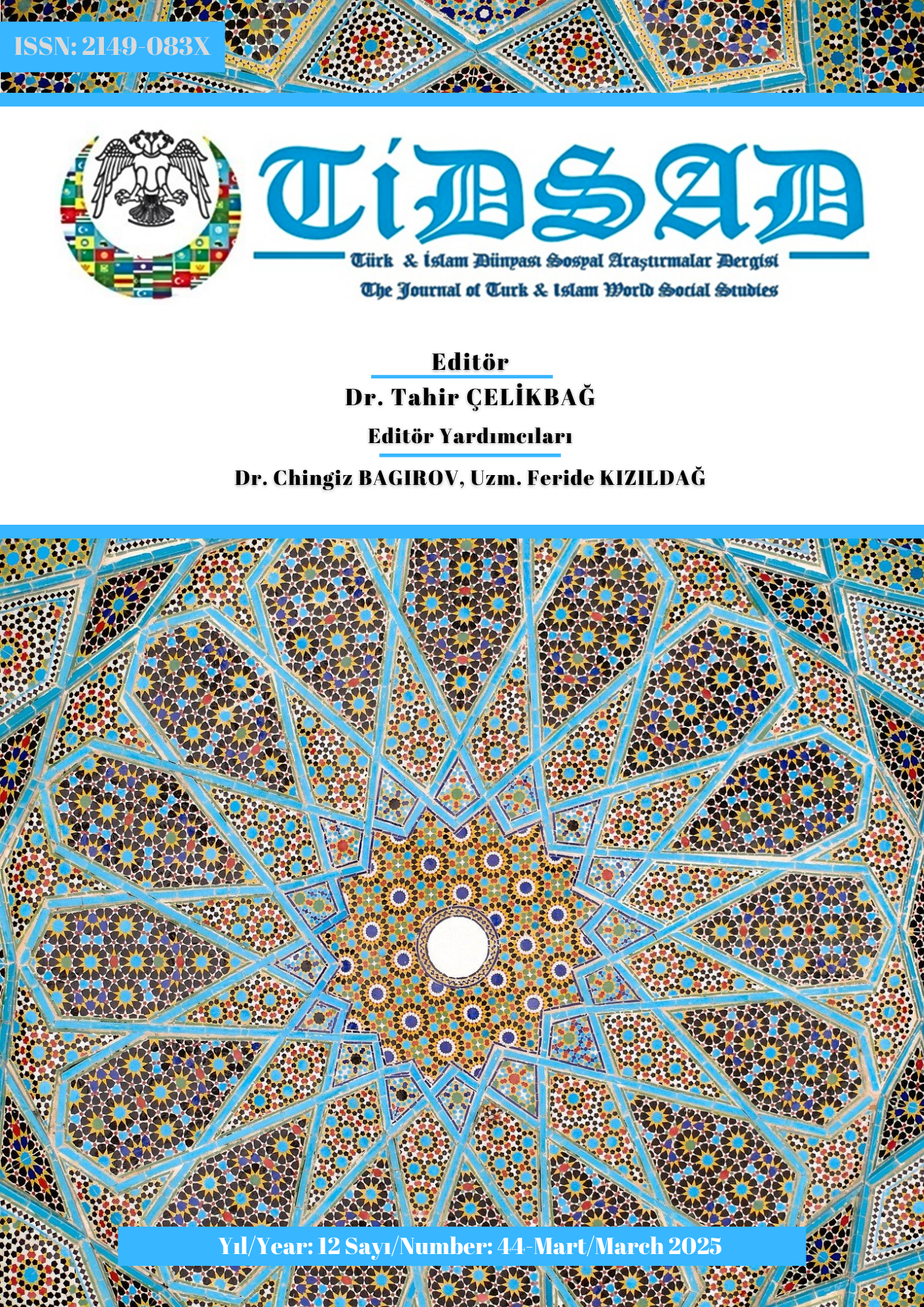Sosyo-Kültürel Bağlamda Türk-İslam Aile Birliği Dağılma Süreci ve Sebeplerinin Edebiyata Yansıma Biçimi (Sabahattin Ali’nin Kuyucaklı Yusuf Eseri Örneği)
Author :
Abstract
Türk edebiyatının Sosyal veya Toplumcu Gerçekçi yazarlarının öncülerinden olan Sabahattin Ali’nin Kuyucaklı Yusuf adlı eserini 1930-40lı yılların ve Osmanlının son dönemlerinin Sosyo-kültürel panoramasını toplumun ve ülkenin edebi, eleştirel, sosyal, kültürel, dini vb. özelliklerini ön plana çıkararak gerçeğe, bilime uygun anlatım yöntemiyle kurgular. Eserde öne çıkarılan ve okuyucuya bilgi, ders, edebiyat zevki, düşünmeye sevk etme alışkanlığı kazandırma temel amacını güden yazar, dönemin her kesiminden, sınıfından bireyi, sistemi ve dönemin idarecilerini gerçekçi biçimde eleştirir. Bu insanların, kurumların veya kurum idarecilerinin kendi şahsi çıkar ve arzuları için Türk-İslam örf, adet, inançlarına aykırı şekilde savunmasız, fakir masum insanları öncelikle aile kurumunu ve kurum görevlilerini bu emellerine alet etmekten çekinmezler. Ailenin dağılmasındaki yıkıcı rolünü ve bu yıkıcılığın bireye, topluma devlete getirdiği maddi manevi ağır hasarlar ve bu hasarların giderilmesinde ahlak çöküntüsü hastalığına yakalanan bireyin, toplum ve sistemin maddi manevi çöküşü anlatılır. Ayrıca dönemin ailesinin yıkılma sebeplerinin yalnızca dış etmenlerden kaynaklanmadığı, aksine aile bireylerinin eğitimsizlik, kuruma saygısızlık, ahlak çöküntüsü, nefsin ön plana çıkması, örf adetlerden, maneviyattan uzaklaşmak vb. olumsuzluklar ailenin yıkılmasına neden olduğu gibi, bu kötü alışkanlıkların birçoğu ailenin devamını sağlayacak olan çocuklara aktarılmıştır. Bu şekilde aynı sorunlar bu yöntemle çok uzun yıllar devam edebilecektir. Sabahattin Ali bu kurgusu ile Türk-İslam geleneğine göre uyumlu, dağılmama idealinde olan bir ailedeki bireylere gerçekçi anlatımıyla adeta bir rehber öğretmenliği yapar.
Keywords
Abstract
Kuyucaklı Yusuf, the work of Sabahattin Ali, one of the pioneers of the Social or Social Realist writers of Turkish literature, presents the socio-cultural panorama of the 1930s-40s and the last periods of the Ottoman Empire with literary, critical, social, cultural, religious, etc. It highlights the features and constructs it with a realistic and scientific narration method. The author, who stands out in the work and aims to give the reader information, lessons, literary taste, the habit of leading to thinking, criticizes the individual, the system and the administrators of the period from all walks of life, classes in a realistic way. These people, institutions or institution administrators do not hesitate to use vulnerable, poor innocent people, primarily family institutions and institution officials for their personal interests and desires, contrary to Turkish-Islamic customs, customs, beliefs. The destructive role of the family in the disintegration and the material and moral heavy damages that this destructiveness causes to the individual, society, the state, and the material and moral collapse of the individual, society and the system who suffers from the disease of moral collapse in the elimination of these damages are explained. In addition, the reasons for the destruction of the family of the period were not caused solely by external factors, but on the contrary, the lack of education of family members, disrespect for the institution, moral decay, the prominence of the soul, distance from customs, spirituality, etc. just as negativity causes the destruction of the family, many of these bad habits have been transferred to children who will ensure the continuation of the family. In this way, the same problems will be able to continue for many years with this method. With this fiction, Sabahattin Ali provides guidance teaching to individuals in a family that is compatible according to the Turkish-Islamic tradition and has the ideal of not falling apart with his realistic narrative.





